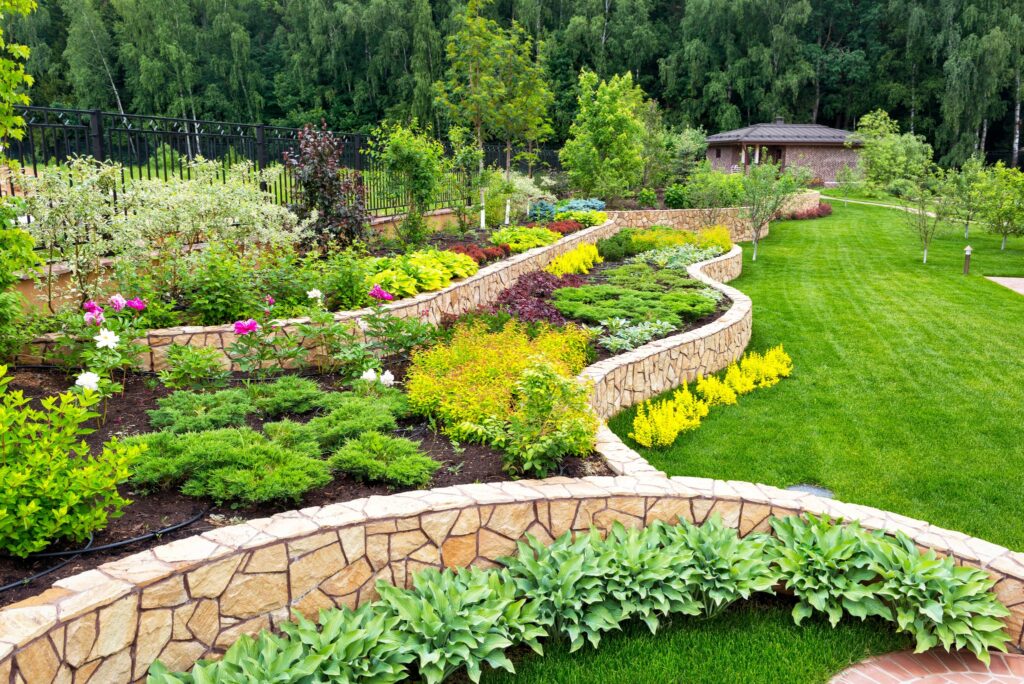Enhancing outdoor spaces through strategic hardscape and landscaping design not only augments the aesthetic appeal of a property but serves as a pivotal investment in boosting its market value. This approach advocates for an integration of functional elements such as patios and walkways with ecological sustainability, leveraging native flora and innovative water management systems to foster a harmonious environment. As we explore the nuanced interplay between design principles and environmental stewardship, one must consider how these practices not only reflect personal style but also contribute to a broader commitment to ecological health. What remains to be seen is how these enhancements translate into tangible benefits for homeowners and communities alike.
Understanding Hardscape and Landscaping Fundamentals
In the realm of landscape design, hardscaping refers to the integration of non-living elements, such as stone walls, paved areas, and wooden arbors, into the natural environment. This foundational aspect of landscaping is crucial in creating structured, functional, and aesthetically pleasing outdoor spaces. The proper selection and placement of hardscape materials not only enhance the visual appeal but also ensure durability and sustainability.
Elements like patios and decks foster communal spaces for gathering, reflecting a sense of belonging and community. Moreover, thoughtful hardscaping can improve accessibility, guiding movement and providing clear pathways throughout garden areas. Thus, mastering hardscape fundamentals is essential for any landscape designer aiming to craft harmonious and inviting outdoor environments.
Key Benefits of Landscape Design
Landscape design offers substantial benefits, enhancing not only the aesthetic appeal of properties but also their functional utility and environmental quality. Thoughtfully designed landscapes create harmonious outdoor environments that can significantly increase property values. By integrating native plant species, landscape architects contribute to local biodiversity, promoting healthier ecosystems. Efficient designs also incorporate sustainable practices such as rainwater harvesting and xeriscaping, which minimize water usage and reduce maintenance costs.
Moreover, well-planned landscapes provide serene spaces for relaxation and social gatherings, fostering a sense of community and belonging among residents. As urban areas become denser, these green spaces are vital, offering much-needed respite and improving overall mental and physical well-being. Thus, landscape design is not merely decorative but a critical investment in sustainability and quality of life.
Practical Design Tips and Ideas
Building on the foundational benefits of Hardscape and Landscaping design, it is equally important to apply practical design tips and ideas that ensure these advantages are fully realized. To transform your outdoor spaces into functional, beautiful sanctuaries, consider the following:
- Zoning Spaces: Divide your landscape into functional areas such as dining, lounging, and gardening, each tailored to specific activities.
- Material Harmony: Choose materials that complement both your home’s exterior and the natural surroundings to create a cohesive aesthetic.
- Lighting for Ambiance: Integrate varied lighting options to enhance the beauty of the area and extend usability into the evening.
- Native Planting: Opt for native plants that thrive in your climate, reducing maintenance and promoting local biodiversity.
Read More:
Innovative Hardscape & Landscaping Design Ideas to Enhance Your Curb Appeal
A Guide to Blending Hardscape and Landscaping for a Perfect Outdoor Oasis

